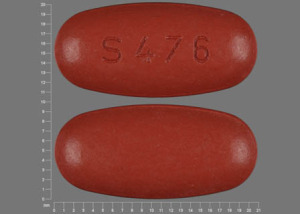Lialda and Chills: What Users Say
Reviews for Lialda
- Luc...
- Taken for 2 to 5 years
- December 26, 2020
For Ulcerative Colitis "I started taking Lialda in April 2015, 4 tablets a day for my ulcerative colitis. After being sick for many months and in and out of the emergency room, I was ready for something that would help me get my life back. I was having diarrhea with blood multiple times a day, along with abdominal pain and cramps, and down to 106 pounds. Lialda started working almost instantly for me. Within a week, I was no longer having any loose stools, blood, and my pain level was down 80%. I had some side effects such as headaches, chills, fatigue, and dizziness; a small price to pay for how much Lialda helped me and saved my life. I was able to slowly decrease my dose to 2 tablets a day, then 1, and now none. I gained weight and started to feel more like myself again. For me personally, it was a great experience that was worth any side effects that eventually went away after my body was used to the medication. I would definitely recommend Lialda; maybe it can help you like it helped me."
- Anonymous
- June 1, 2014
For Ulcerative Colitis, Active "Lialda is not for everyone. Talk to your doctor about other options because they're out there! I was prescribed to take Lialda 3 times daily. A couple of hours after my third dose, I developed the following reaction: fever, nausea, vomiting, chills, rash/hives on my throat and neck. My doctor wanted me to continue taking Lialda but lessen the dose. I did as told and was bedridden from the side effects. I then found a GI doctor and was prescribed Asacol and medicated enemas. No reactions yet! I wonder why Lialda made me sick, but I am fine with Asacol?"
Frequently asked questions
- Bab...
- June 8, 2014
For Ulcerative Colitis, Active "I am on day 3 of Lialda. The first day I took all 4 pills with breakfast. Did the same on day 2. Day 2 I had severe diarrhea, chills, and headache. I felt like I had the flu. That night I did the Canasa suppository. Woke up several times in the night, but did not go to the bathroom. Day 3, I woke up with a severe headache and mild diarrhea. I decided that I would take 2 Lialdas with breakfast. I started feeling a little better. It is now night 3, and I just took 2 Lialdas with dinner. Headache is not as severe. I am hoping that by day 7 I feel normal again. I was diagnosed with Ulcerative Colitis in 2003. I have not had a flare since 2006 until recently."
See also:
More about Lialda (mesalamine)
- Lialda consumer information
- Check interactions
- Compare alternatives
- Pricing & coupons
- Reviews (105)
- Drug images
- Side effects
- Dosage information
- During pregnancy
- Generic availability
- FDA approval history
- Drug class: 5-aminosalicylates
- Breastfeeding
- En español



For Ulcerative Colitis, Active "This drug almost killed me. I started during a flare-up in my 2nd trimester. My hair would fall out and kept reporting unexplained protein in my urine at every doc appointment. I lost 15 lbs during pregnancy and was determined high risk. 6 months post-term, I started to get severe chills to fever, couldn't eat, had full colitis symptoms. I was hospitalized with cardiac distress, severe anemia, and dehydration and stage 4 kidney failure caused by Lialda. Mayo Clinic detected that the protein in my urine was, in fact, a side effect from the Lialda. I was immediately taken off, and my creatinine and iron levels began to stabilize, and my hair stopped falling out."